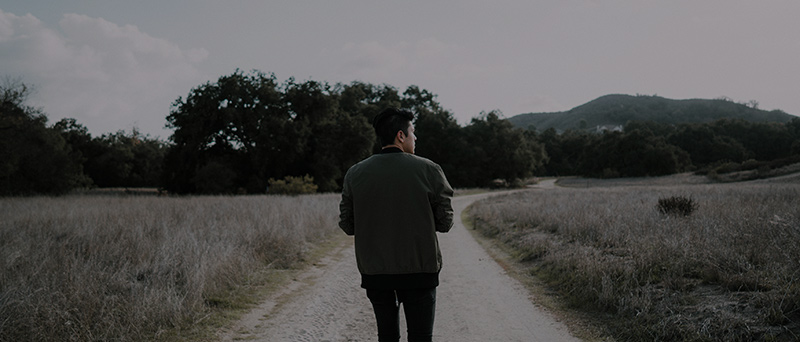
I’m a closeted gay man.
When I first typed that sentence, it felt good. The more I looked at it on my screen, the less good it felt. I want the courage to delete the word “closeted” and to not confine my declaration to written words that will never be attributed to me by name.
I’m a closeted gay man, but of a different sort. I’m attracted to other men – always have been – but I believe in a traditional view of marriage. And I’ve been an evangelical pastor for more than thirty years. Who knows, I might be your pastor.
Gays started using phrases like “coming out of the closet” in the 1960’s, the same decade when I was figuring out that I had this huge problem that I did not want, did not understand, and that I had no one with whom to talk it over. I didn’t know the closet metaphor – I was ten, eleven, twelve in my period of self-discovery – but I knew I needed to put my attraction to other boys and the tingle they caused inside of me away, out of sight, out of anyone else's reach, behind other stuff.
My family’s sexual ethics contradicted godly wisdom in every way, but even in our house, I knew that boys being attracted to boys would be condemned and met with my father’s leather belt swishing through the air at my naked skin. Or by tears from a powerless mother who would have been ashamed and repulsed to know about me. And I would have rather faced my dad’s anger in the privacy of our apartment than the ridicule and scorn of my schoolmates. No one celebrated being a queer in 1967 – that’s the word they would have used in the time before the word “gay” entered my public school companions’ vocabulary or my family’s conversations. To me, it’s an awful word, the N-word of my journey, and I cannot bear to add a Q to LGBT. Words hurt.
So has the closet. It’s crippled me. And I’d like for all people who are interested in the LGBT/Christian discussion to know how. Even if I’m the only crippled one, your knowing what it’s been like is important. But I know I’m not the only crippled one.
Living in the closet convinced me that God loves me differently than He loves other believers, if He loves me at all. My rational mind rejects that theology and knows all the verses to throw at it. My rational voice isn’t the loud one. When I pray, for myself or for others, I always add something like this: “I understand that You have no reason to listen to me, to answer my prayers, to care about what I care about. Please don’t punish the people I’m praying for because I’m so awful.” Why do I feel this way about myself? After all, I know God doesn’t find honorable men like Greg Coles or Wesley Hill to be awful. But they tell the truth. I lie. Everyday.
Living in the closet filled me with shame. I couldn’t help that I liked other boys; when I began to understand that I wasn’t turning out normal, I wanted to like girls more than the straight boys did; but this attraction I couldn’t stop has always been met by a corresponding shame. After I learned that God cared about what we do sexually, I soon learned that He hated what I wanted so badly to do with other guys. To an adolescent theologian, feeling then that He hated me was not a far jump. I made the transition from reading that I was drawn to abominable acts to feeling that I was an abomination to God. Living these five decades in the closet have left me convinced. I wish I could say that I hope that feeling will change, but I don’t even think it’s possible at this point. Cubs fans don’t become White Sox fans in their seventh decades. A lifetime of hating the taste of mustard isn’t going to fade into wanting it on my cheeseburgers.
Living in the closet left me unknown to the dearest in my life. Austin Plaine’s “Never Come Back Again” has been the first added song to my every playlist of the past two years. My favorite lines say “I wanna ease my mind/Of all the doubt that haunts it/I wanna run out in the light and never come back again.” I never fantasize about easing my mind of doubt, but running out in the light sounds both wonderful and terrifying.
Sometimes I dream about standing in front of a church and telling them the truth. It turns into being kicked out. Into every good thing I have ever been a part of for Jesus coming under suspicion (“Should I get baptized again, by a real pastor? Should we ask the boys if…?”) These are real fears.
I treasure my few relationships not tied into knots by my lies and deception. Only two are with believers. The one publishing this blogpost and an Episcopal priest who defines sin way differently than I do. The other people who really know me are my therapist – an atheist who saved my life --, friends in a local artistic community where I have found some solace in writing fiction, my doctor, and a gay man my age who got divorced from his wife of almost forty years. Perhaps that’s enough, more than many closeted folks have. But my children don’t know the real me. I don’t want to tell them, to disappoint them. But oh, how I wish I knew if they’d love me if they knew me.
Living in the closet kept me from having true accountability partners. That whole relationship is predicated upon truth-telling, which I wasn’t going to do. Thirty years ago, when pastors in my denomination first began to separate into accountability groups, admitting to being gay – even if I had no sinful gay act to confess – would have ended my career and would not have remained secret. We publish details about kicking pastors out in a book and try to sell one to all of us.
Surely things have changed, some would say. Maybe. But within the past several weeks, I started a conversation with the pastors I know the best, pastors from my own denomination. “The gays don’t want to be held accountable for their actions,” I heard. “You don’t think they choose to be gay?” I was asked. By good pastors. By loving colleagues. By men I might be willing to die for. By men who are not safe for me.
Living in the closet kept me from having a tribe. I tried to belong to the Christian community. I believed, I attended, I served, I studied, I vowed. But I would have been stopped, questioned, barred at some point, if they had known that I am only sexually attracted to other men.
One time, on a trip, I visited a gay bar. I didn’t do anything sinful, unless it was sin to even be in the bar. I drank Coke. I didn’t lust. I listened without talking. I heard what some of them think about the church, which is also me. My quiet listening made it plain that I wasn’t in the gay guy tribe either. If they had known I was an evangelical pastor, they might have ushered me out the iron doors.
I know I built the closet I live in. No one is to blame but me. I hope I might move out of it someday. But then, I used to hope that I’d wake up and want women, too.
That doesn’t mean I have no hope at all. Paul tells Timothy, “This is a trustworthy saying, and everyone should accept it: ‘Christ Jesus came into the world to save sinners’—and I am the worst of them all. But God had mercy on me so that Christ Jesus could use me as a prime example of his great patience with even the worst sinners. Then others will realize that they, too, can believe in him and receive eternal life.” (1 Timothy 1:15-16, NLT)
Here I hope in my closet: Oh, Jesus, let that be true for me.
Check out Grace/Truth!
A small group learning experience designed to help Christians engage in conversations about faith, gender, and sexuality.

